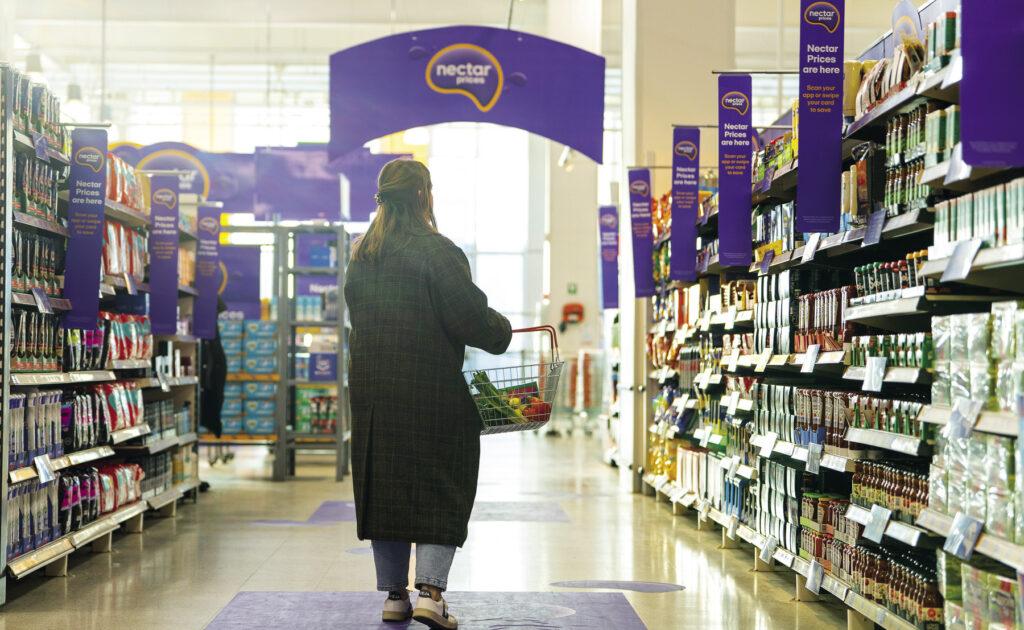Personalisation is the keyword in retail this year
Personalisation, artificial intelligence (AI), and sustainability – these are the keywords that are unanimously mentioned in almost all the trend forecasts that analyse the prospects and opportunities for retail in 2024. The Economist Group’s EIU research division predicts that retail sales will grow by 6.7% in dollar terms in 2024. Online sales are expected to rise by double-digit numbers again.
This article is available for reading in Trade magazin 2024/2-3
Is prudent spending the new normal?
In spite of the easing of inflation, we remain in the dark as to whether consumer spending will grow this year or whether shoppers will pull on the brakes even further. Credit card debt in the United States soared to a record high USD 1tn last year. Amid lowering inflation in the United Kingdom, experts are forecasting an upturn in FMCG sales after two years of moderate expansion. NIQ retail expert Mike Watkins believes the British FMCG sector could grow by 4-5% in 2024, with a 0.5-1% increase in volume sales. Making shoppers personalised, targeted offers to save money – whether on essential daily items, new products or shopper favourites – could be key for retailers in 2024. Earlier this year Asda has already implemented a price matching campaign, aligning the prices of hundreds of everyday essentials with prices in Aldi and Lidl stores.

The majority of households will remain price-sensitive, researchers say
Private labels bringing light into the night
According to FMI The Food Industry Association, 96% of food shoppers in the US buy a private label product at least occasionally. Numerator claims 37% of consumers do so to save money, but shoppers are also attracted by the quality and taste that private label brands deliver. Private labels are also successful in Europe – traditionally the biggest market for private labels – according to the PLMA’s latest updated annual report. In the 17 countries surveyed by NIQ, the association’s share grew to 38.1% in 2022-2023 – an increase of 1.7% on 2021-2022. The expansion of private labels is also confirmed in a report published by dunnhumby at the end of 2023, revealing that 7 out of 10 consumers purchased more private label products last year than in 2022.
It is all about the customer experience
Sushant Warikoo, senior vice president and business unit head retail at Cognizant Technology Solutions Co. says: shopping experience is going to remain the top priority for businesses. If a company wishes to stay competitive, it is essential that the shopping experience is reviewed and renewed from time to time. The next 12 months will see digital and physical retail intertwine even more than ever to develop new content and shopping experiences. Technologies used in brick-and-mortar stores will include AI, virtual and augmented reality to organise events, courses and demonstrations, but also providing staff with technological devices. In Germany Rossmann is already testing the use of an AI assistant called “Microsoft Copilot” in its stores.
Shoplifting
In 2023 the international trade press was reporting on the proliferation – and even the mass and organised nature – of shoplifting in the middle of a cost of living crisis, and of course on the efforts of retailers to combat it. The problem appears to be huge not only in the US but also in the UK and Spain, and it affects all retailers, from low-price supermarkets to luxury stores. In response to the phenomenon, some retailers – especially drugstore chains – have put certain products (baby food, make-up products, toothpaste) in locked cabinets, which makes shopping a less pleasant experience. According to Cognizant, companies will increasingly use technology to support retail workers and curb small-scale fraud, including image recognition and various sensors such as RFID chips, together with generative AI.

According to Insider Intelligence, nearly 78 million people in the US have used generative AI at least once a month in 2023
AI and hyper-personalisation
AI has been the most significant disruptor in retail trade since the emergence of online shopping, and it will continue to be so in the future, reports an article on retail trends for 2024 published in Forbes magazine. AI-based retail solutions, as Trax Retail chief revenue officer David Gottlieb points out, can make the lives of retailers easier by improving operational efficiency and maximising the customer experience, e.g. by managing stock and orders and planning demand. Generative AI is likely to move from the experimental phase to the deployment phase in hyper-personalisation, predicts Insider Intelligence. According to the researcher, nearly 78 million people in the US will use generative AI at least once a month by 2023.
Steps to mitigate labour shortages
Creating a work environment where employees feel comfortable can improve the brand experience and positively influence the customer journey. Today’s consumers have a strong desire for human connection, whether it is shopping locally or feeling a sense of kinship with influencers and content creators. Retailers are concentrating on human connections through investment in human resources: spending on training to give employees the opportunity to learn about other fields and paying attention to the wellbeing of staff. The biggest problem for retailers is a lack of staff. Creating an inclusive environment that signals a mutual commitment between retailers and their employees will be essential to attracting talent in the future. A few years back it was enough to offer an aspiring employee a raise in their hourly rate, today more than just compensation is needed. Generation Z employees want to be connected to the brand’s mission and values, and they want genuine and sincere recognition and respect.
A battle of loyalty schemes
According to dunhummby’s global report, shopper loyalty to major retailers remains strong despite the fact that many people continue to live in difficult circumstances. The study reveals that despite reports to the contrary, 70% of retailers have maintained or even increased their loyal customer base in recent years, and 53% have increased their use of loyalty schemes. It is interesting that in a compilation on trends, the UK’s RetailGazette highlights the traps hidden in the oversupply of loyalty programme. In the article, Matt Jeffers (managing director of Accenture’s retail strategy and consulting division) argues that loyalty schemes can easily drive retailers towards cheaper pricing instead of increasing customer loyalty, as consumers don’t become emotionally attached to retailers or programmes beyond the collectible points, membership rates and rebates they can get. Investing in AI can be the solution: this would make it possible for retailers to reward customer loyalty in a more sophisticated and personalised fashion. //

According to a study by dunnhumby, most retailers (70%) have retained and even increased their loyal customer base in recent years
//
NMS: nearly three quarters of Hungarians expect further price increases

Guest writer:
Adrienn Dorogi
senior researcher
NMS Hungary
“According to our survey conducted at the end of last year, a large part of the population is starting the new year anxiously”, said Adrienn Dorogi, senior researcher at NMS Hungary.
In 2024, 74% expect further price rises, with one in two people predicting a significant increase. The majority anticipate an increase in food prices in particular, but two out of three also expect utility costs and medicine prices to rise. 56% think they will have to spend more on transport this year and 50% expect a rise in phone and internet costs.//
Related news
PwC Global CEO Survey: CEO confidence at a five-year low
🎧 Hallgasd a cikket: Lejátszás Szünet Folytatás Leállítás Nyelv: Auto…
Read more >Fashion, drones and sustainability – the new face of agriculture at the AgriTech InnoExpo event
🎧 Hallgasd a cikket: Lejátszás Szünet Folytatás Leállítás Nyelv: Auto…
Read more >High-value shopping basket and more conscious shoppers: growing demand for domestic and healthy products
🎧 Hallgasd a cikket: Lejátszás Szünet Folytatás Leállítás Nyelv: Auto…
Read more >Related news
ZEW: Economic expectations worsened in Germany and the euro area in February
🎧 Hallgasd a cikket: Lejátszás Szünet Folytatás Leállítás Nyelv: Auto…
Read more >NKFH: inspections focus on discount prices and customer deception
🎧 Hallgasd a cikket: Lejátszás Szünet Folytatás Leállítás Nyelv: Auto…
Read more >








